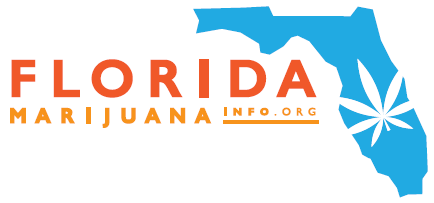Big Pharma company Insys is fighting against the legalization of recreational marijuana in Arizona. The prescription drug company that manufactures opioids donated $500,000 to stop recreational marijuana use and all products. More patients are turning to medical marijuana for pain relief instead of prescription drug use that kills thousands of people each year. Sources can be found here.
The campaign to prevent cannabis legalization in Arizona recently accepted a half-million dollar donation from a pharmaceutical company accused of peddling a dangerous narcotic painkiller off-label.
Prescription drug company Insys made the donation to Arizonans for Responsible Drug Policy on Aug. 31, according to information posted by the Arizona Secretary of State. The revelation has lent support to longstanding claims by legalization proponents that drug companies view cannabis as a source of competition for their more addictive, dangerous and expensive products.
“Our opponents have made a conscious decision to associate with this company,” said J.P. Holyoak, chairman of the Campaign to Regulate Marijuana Like Alcohol. “They are now funding their campaign with profits from the sale of opioids – and maybe even the improper sale of opioids. We hope that every Arizonan understands that Arizonans for Responsible Drug Policy is now a complete misnomer.”
In November, Arizona citizens will vote on Proposition 205, which would legalize marijuana possession in small quantities and regulate sale of the plant and its products for recreational use.
Collusion with Pharma criminals
Twenty-five U.S. states, including Arizona, have legalized medical use of marijuana. The Arizona law passed in 2010 by a margin of only 4,000 votes.
An additional four states plus the District of Columbia now also permit recreational marijuana use. Arizona is one of five states that will vote to join them in November, along with California, Maine, Massachusetts and Nevada. Supporters of Proposition 205 expect the vote to be close again, possibly as close as it was in 2010.
The federal government continues to ban marijuana as a Schedule I drug with “no accepted medical use.”
The large donation from the prescription drug company Insys to the anti-legalization campaign is particularly notable because the company only markets a single product: Subsys, a sublingual spray form of the synthetic opioid painkiller fentanyl. Fentanyl is stronger than heroin, highly addictive and can cause lethal overdoses. It was fentanyl that led to the accidental death of the musician Prince in April.
In August, Illinois Attorney General Lisa Madigan filed a lawsuit against Insys, accusing the company of promoting Subsys to doctors for off-label uses, in violation of federal drug laws. Madigan claims that the company’s “desire for increased profits led it to disregard patients’ health and push addictive opioids for non-FDA approved purposes.”
Two former Insys employees are also facing federal criminal charges, standing accused of involvement in a kickback scheme to encourage doctors to prescribe the drug.
Barrett Marson, spokesperson for the Arizona legalization campaign, said that given Insys’ murky record, the anti-legalization group should return the donation.
Arizonans for Responsible Drug Policy has said that they will keep the money.
“We are truly shocked by our opponents’ decision to keep a donation from what appears to be one of the more unscrupulous members of Big Pharma,” Holyoak said.
Afraid of competition
The impression that Insys is trying to prevent a competing product from entering the market is enhanced by the fact that the company used to market a synthetic version of tetrahydrocannabinol (THC), the major chemical responsible for the marijuana “high.” While the federal government bans cannabis as having “no accepted medical use,” it ironically permits the use of synthetic THC for treating nausea, loss of appetite and other symptoms in patients with cancer and HIV.
These are some of the same medicinal benefits that cannabis provides, at much lower cost.
Although Insys no longer markets that particular synthetic THC product, it is currently working on a new one.
Even without those products, however, medical cannabis is considered a major potential competitor to opioids, as both products are prescribed for chronic pain.
A 2014 study by researchers from Johns Hopkins University found that states that legalized medical marijuana saw significant drops in opioid overdose deaths.
A study published earlier this summer in the journal Health Affairs found that those states also saw a significant decrease in pharmaceutical prescriptions for conditions that can be treated by cannabis, including anxiety, depression, pain, nausea, psychosis, seizures, sleep disorders and spasticity. This led to substantial savings in Medicare spending.
Manufacturer of addictive prescription drug donates $500,000 to fight cannabis legalization













 OMD Agency
OMD Agency
Recent Comments